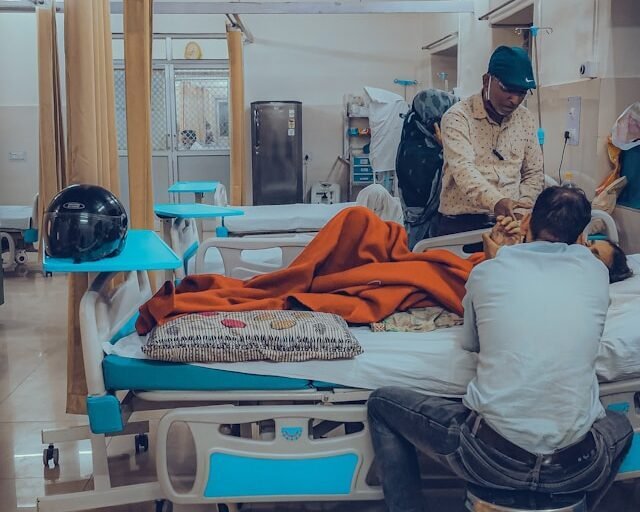Covid surge sends Indian hospital ops into chaos with diarrhea, fever, and hoarse voices rampant
India is currently grappling with a sharp surge in COVID-19 infections that is overwhelming hospital outpatient departments (OPDs) nationwide. Over the past ten days, patient visits to OPDs have surged by three to four times, signaling a disturbing rise in mild to moderate cases. The symptoms reported most frequently include hoarse voice, throat pain, watery diarrhea, mild stomach cramps, and fever.
The driving force behind this new wave are highly transmissible Omicron subvariants—JN.1, NB.1.8.1, and LF.7—that have swept across the country with alarming speed. These variants, while widely contagious, tend to cause relatively mild illness in the general population. Nonetheless, the sheer volume of infections is placing unprecedented strain on outpatient facilities, forcing hospitals to brace for continued high patient influx.
Doctors on the frontline are observing a worrying pattern of symptoms. “Hoarse voice and diarrhea are among the most common complaints we’re seeing,” said Dr Pradeep Bajad, senior consultant for pulmonary and critical care at Amrita Hospital in Faridabad. “While the current cases do not frequently escalate to severe illness, there is a palpable increase in visits as people seek treatment for these distressing symptoms.”
Embed from Getty ImagesDespite the rising number of cases, ICU admissions directly linked to Covid remain stable, with no significant surge reported. Experts attribute this to the milder nature of the circulating variants but caution that vulnerable groups—such as those with diabetes, chronic respiratory conditions, weakened immune systems, elderly citizens, and young children—still face considerable risk.
“Most people recover relatively quickly in this wave,” Dr Bajad noted. “But there is heightened vigilance among individuals with existing health issues, as well as among seniors and parents of young children, who are understandably anxious about their loved ones.”
Hospitals across India are on high alert, managing a growing tide of patients presenting with typical Covid symptoms. The spike in OPD visits also reflects a sense of rising public concern, with many seeking medical advice at the earliest signs of illness.
Healthcare facilities, however, stress that despite the increase in outpatient numbers, the current wave has not translated into a proportional rise in critical cases. This distinction is crucial as it guides resource allocation and response strategies, ensuring that ICU capacities remain adequate for those in genuine need.
The rapid spread of these Omicron subvariants highlights the virus’s ability to mutate and persist, challenging public health systems worldwide. Indian hospitals are responding by urging continued adherence to safety measures and encouraging vaccinations, particularly booster doses, to mitigate severe outcomes.
In summary, while the ongoing Covid surge is far from over, the focus remains on managing mild to moderate cases that flood hospital OPDs rather than a crisis of critical care. The public is urged to stay vigilant, especially those in high-risk categories, and to seek timely medical consultation to avoid complications.
